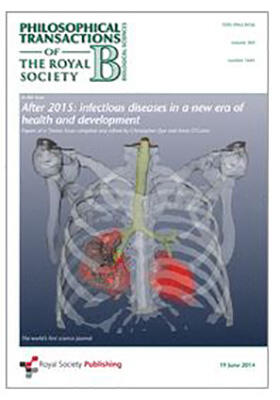
Professor Janet Hemingway, Director of LSTM, is warning that there needs to be careful management of the resistance situation while new insecticides are being developed if current gains in malaria control are not to be reversed.
In an article published in the Philosophical Transactions of the Royal Society B: Biological Sciences, “The role of vector control in stopping the transmission of malaria: threats and opportunities”, Professor Hemingway explains that the push to reduce the burden of malaria by the use of pyrethroid insecticide-treated bed nets and indoor residual spraying (IRS) has reduced malaria death by a third. However, as resistance among mosquito populations spreads, the effectiveness of these measures will be further compromised.
The paper is published in a special edition of the journal entitled “After 2015: infectious diseases in a new era of health and development” focussing on the frontiers of infection biology as we come towards the end of the Millennium Development goals era. Professor Hemingway calls for better product stewardship, with all bed nets and 80% of IRS formulations using pyrethroids, which has already led to resistance issues in Africa, which has the greatest burden of malaria mortality. She also points out that if the current improvements in disease control are to be maintained that funding levels to support control efforts needs to be increased substantially.
In the article she looks at the creation of a public - private partnership, IVCC, which currently has nine potential new classes of chemistry that are in the pipeline, with the intention of developing three new insecticides. However these will take between six and nine years to reach the market and it is during this timescale that Professor Hemingway calls for effective resistance management: “Pyrethroid resistance has occurred in waves and we have been fortunate that the resistance selected initially has been low level and has little impact on the effectiveness of pyrethroid-based IRS or bed nets, but this situation is now changing rapidly. We need to exert better stewardship of the insecticides and drugs needed to prevent and treat the disease, to ensure that they remain viable in the medium term. If we do not do this now, the resistance will inevitably reduce our ability to prevent and control malaria.”
The full article can be accessed here.